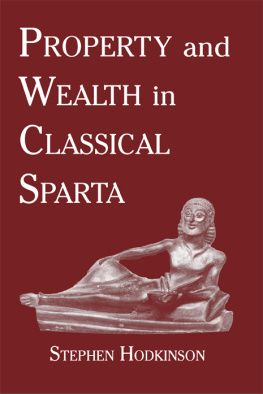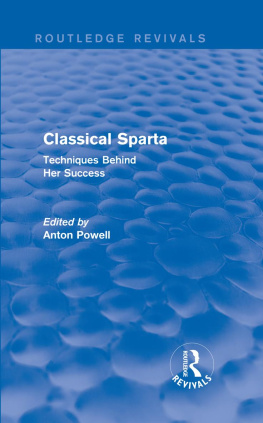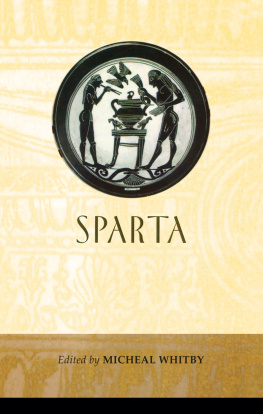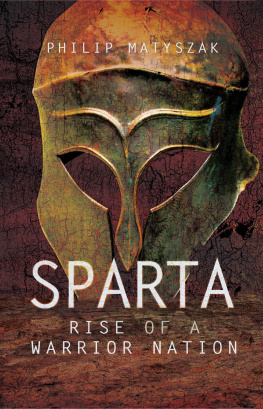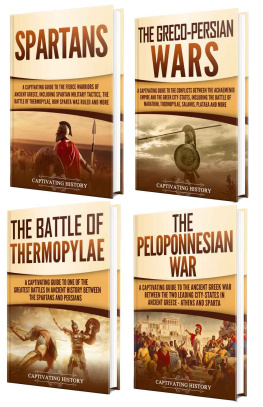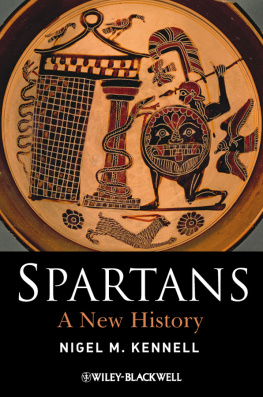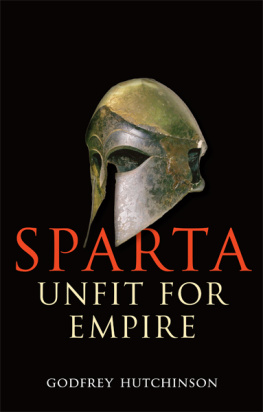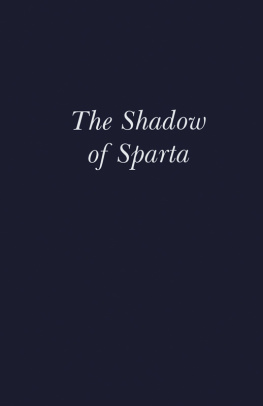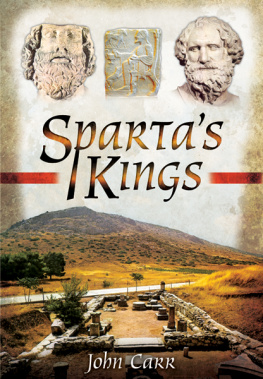
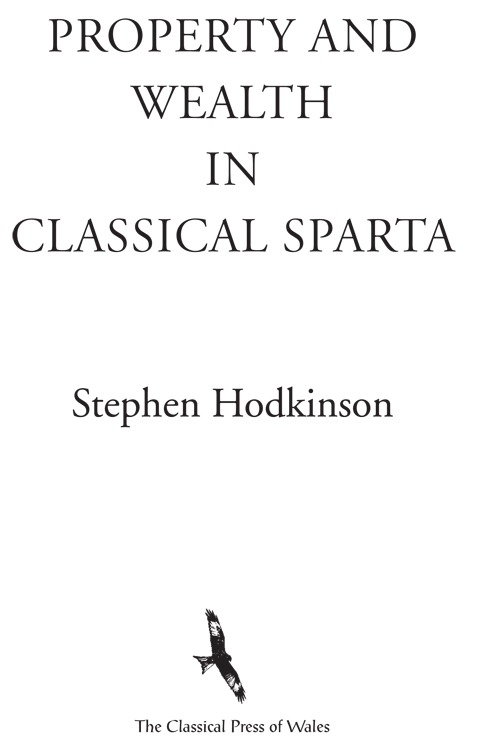
First published in hardback in 2000
This paperback edition 2009
The Classical Press of Wales
15 Rosehill Terrace, Swansea SA1 6JN
Tel: +44 (0)1792 458397
Fax: +44 (0)1792 464067
www.classicalpressofwales.co.uk
Distributor
Oxbow Books,
10 Hythe Bridge Street,
Oxford OX1 2EW
Tel: +44 (0)1865 241249
Fax: +44 (0)1865 794449
Distributor in the United States of America
The David Brown Book Co.
PO Box 511, Oakville, CT 06779
Tel: +1 (860) 9459329
Fax: +1 (860) 9459468
2009 The author
All rights reserved. No part of this publication may be reproduced, stored in a retrieval system, or transmitted, in any form or by any means, electronic, mechanical, photocopying, recording or otherwise, without the prior permission of the publisher.
ISBN 9781905125302
A catalogue record for this book is available from the British Library
Hilariae meae
CONTENTS
PART I. SPARTAN PERCEPTIONS
PART II. THE ANATOMY OF THE SPARTIATE
PROPERTY SYSTEM
PART III. RICH CITIZENS AND THE USE OF
PRIVATE WEALTH
PART IV. PROPERTY AND THE SPARTAN CRISIS
LIST OF FIGURES
ACKNOWLEDGEMENTS
In the course of many years study of classical Sparta I have accumulated debts to a great number of persons and institutions. My education in ancient Greek history began as an undergraduate in the Manchester History School, where I was inspired to work on Sparta by the teaching of Cosmo Rodewald and the writings of Geoffrey de Ste Croix. My postgraduate research at Cambridge was skilfully guided, initially by Sir Moses Finley, and latterly by Paul Cartledge, to whom I owe over two decades of personal encouragement and advice. Anthony Snodgrass too has since the late 1970s given consistent support to my work. I am especially indebted to him and to James Roy for their helpful comments as examiners of my doctoral dissertation, of which this volume is a distant descendant.
Most of the research and writing for this book was performed during my tenure of a Nuffield Foundation Social Science Research Fellowship and an award under the Research Leave Scheme of the British Academy Humanities Research Board. The University of Manchester provided a further semester of sabbatical leave and also, through the Faculty of Arts Recurrent Grant for Research, funding for invaluable teaching relief during the final months of writing. My capacity to undertake this research has been aided immeasurably by the excellent holdings of the John Rylands University Library of Manchester, supplemented where occasionally necessary by the efficient efforts of the InterLibrary Loans department. A fruitful month in the library of the British School at Athens enabled me to access numismatic material and work by Greek scholars not easily accessible in the UK. I also thank the editor of the BSA Studies Series, Dr W.G. Cavanagh, for permission to reproduce material from my contribution to vol. 4 in the series (Hodkinson 1998b) which forms a major part of
I am glad to express my gratitude to my colleagues (both academic and secretarial) in the School of History and Classics at the University of Manchester for their personal and practical support during the long gestation of this book. I am grateful to colleagues in the Department of Classics at the University of Nottingham, who generously offered me the honorary position of Special Lecturer, which has permitted my access to the Universitys library and computing facilities. David Taylor of the Department of Archaeology at Nottingham has kindly produced the volumes maps. One of the joys of working on Sparta today is the growing spirit of international cooperation among scholars from different nations. Many colleagues around the world have assisted me with specialist advice on particular aspects of my study. I have endeavoured to acknowledge their help at appropriate points in the text; and I apologise here to any whom I have inadvertently omitted. Certain academic friends, however, merit special mention. Robin Osborne and Paul Cartledge have provided constructive criticism of several chapters, which have been materially improved by their comments. Noreen Humble generously volunteered to proof-read several chapters. Above all, Anton Powell, my editorial collaborator over many years, has contributed much expert academic and technical assistance. To his unstinting efforts and to the unrivalled typesetting skills of Ernest Buckley I am indebted for the prompt production and publication of this complex book.
My greatest debts, however, are personal ones. My children (Christopher, David, Rosemary, Peter and Joy) have learned, with the enviable flexibility of the young, to tolerate a fathers constant preoccupation with a project seemingly without end. My wife Hilary Hodkinson has proof-read the entire volume and greatly improved my clarity of exposition. Her unswerving support has been a continual reminder that there are more important things in life than property and wealth. I dedicate this book to her.

ABBREVIATIONS
Abbreviations of ancient sources generally follow the forms used in LSJ9 or OCD 3; abbreviations of modern periodicals those in L'Anne Philologique. In certain cases common and easily identified variants have been used. In addition, the following abbreviations should be noted:
BMC, Attica British Museum. Department of Coins and Medals, Catalogue of
Greek Coins. AtticaMegarisAegina, London 1888.
| CEG | P.A. Hansen, Carmina Epigraphica Graeca, 2 vols., Oxford 19839. |
| CH | Royal Numismatic Society, Coin Hoards, London 1975. |
| CID II | J. Bousquet, Corpus des Inscriptions de Delphes. Tome II: Les comptes du |
| quatrime et du troisime sicle, Paris 1989. |
| CVA | Corpus Vasorum Antiquorum, 1925. |
| FdD | Fouilles de Delphes |
| FGrH | F. Jacoby, Die Fragmente der griechischen Historiker, Berlin 1923. |
| FHG | C. Mller, Fragmenta Historicorum Graecorum, Paris 1848. |
| IG | Inscriptiones Graecae, Berlin 1873. |
| IGCH | M. Thompson, O. Morkholm and C.M. Kraay (eds.) An Inventory of |
| Greek Coin Hoards, New York 1993. |
| IvO | W. Dittenberger and K. Purgold, Olympia: die Ergebnisse der von dem |
| deutschen Reich veranstalteten Ausgrabung. V. Die Inschriften, Berlin 1896. |
| LSJ9 | H.G. Liddell, R. Scott and H.S. Jones, Greek-English Lexicon, 9th edition, Oxford 1968. |
| LSJ, | Rev. Suppl. P.W. Glare, Greek-English Lexicon, revised supplement, |
| Oxford 1996. |
| ML | R. Meiggs and D.M. Lewis, Greek Historical Inscriptions to the End of |
| the Fifth Century, revised edition, Oxford 1988. |
| OCD3 | S. Hornblower and A. Spawforth (eds.) The Oxford Classical Dictionary, 3rd edition, Oxford 1996. |
| RE | A. Pauly, G. Wissowa and W. Kroll (eds.) Real-Encyclopdie der |
| classischen Altertumswissenschaft, Munich 1893. |
| SGDI | H. Collitz et al. (eds.) Sammlung der griechischen Dialekt-Inschriften, |
| Gttingen 18841915. |

